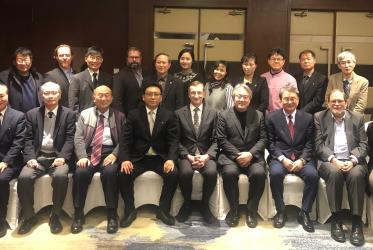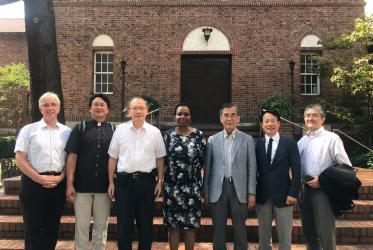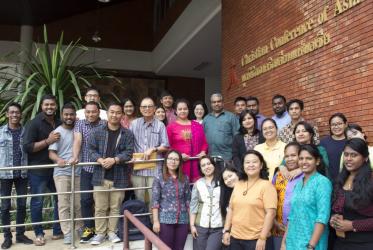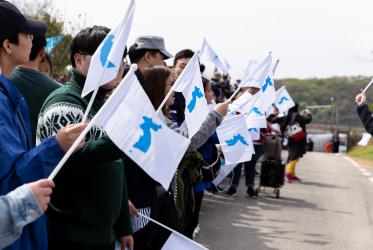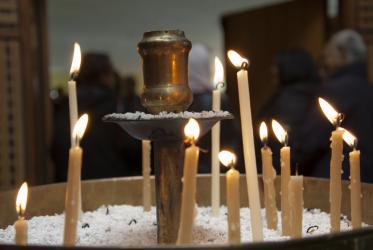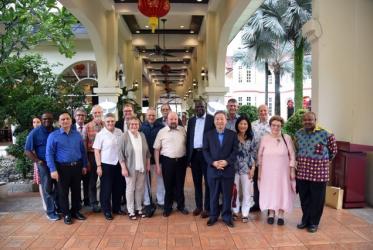Displaying 41 - 60 of 151
Religious leaders keep vision of peace alive on Korean Peninsula
10 December 2019
WCC delegation meets with Korean prime minister
19 November 2019
The cry of the Papuans in Indonesia
14 November 2019
In Japan, spirit of koinonia deepens
26 September 2019
In Japan, indigenous and ecumenical youth call for action against racism
12 September 2019
Young peoples movement strengthens influence
15 August 2019
Peace is common denominator of all major religions
05 March 2019

